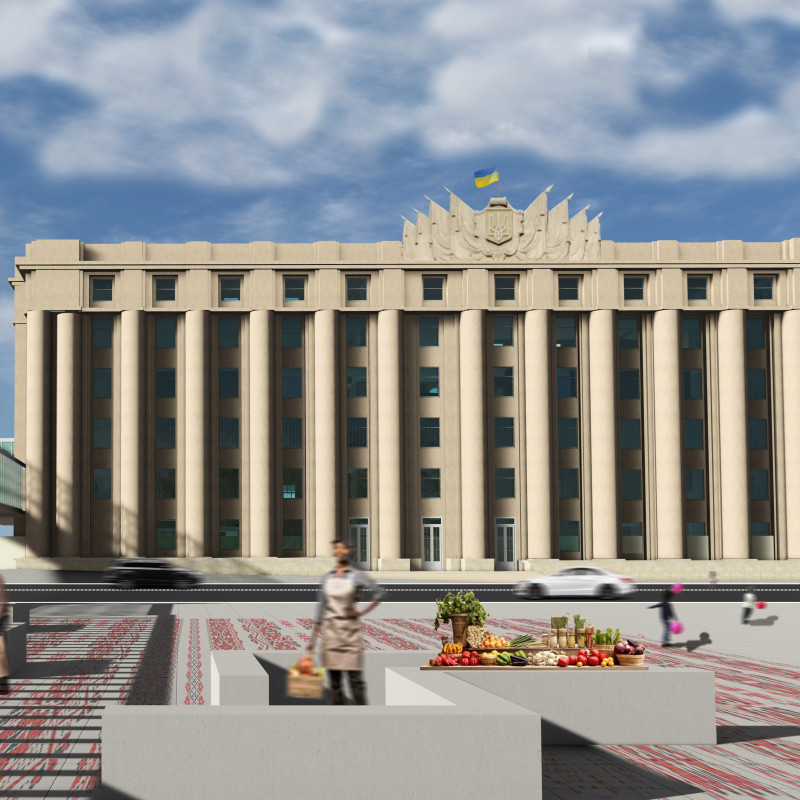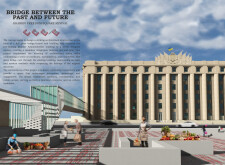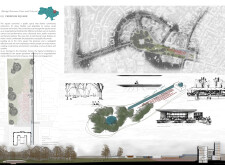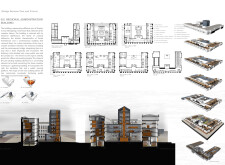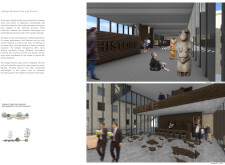5 key facts about this project
### Overview
The project seeks to revitalize Freedom Square in Kharkiv, aiming to create a community-focused space that integrates contemporary architectural design with the site’s historical significance. The initiative connects the existing Kharkiv Administration building with an expanded public square, emphasizing continuity and interaction among users.
### Architectural Integration
A key element is the glass bridge that links the administrative building and the square. This architectural feature is characterized by extensive glass panels that promote transparency, allowing natural light to permeate and fostering visual connectivity. The design respects the heritage of the existing structure while introducing modern elements, thus creating a juxtaposition that enhances the site's visual appeal. Freedom Square itself is designed as a multifunctional public realm, complete with landscaped areas and pedestrian pathways, which support diverse activities such as markets and performances. Incorporating modular seating and shaded spaces promotes comfort and encourages community interaction.
### Sustainable Design Practices
The project employs a careful selection of materials with an emphasis on sustainability and local authenticity. Glass is extensively used in the bridge, optimizing energy performance while providing sweeping views. Stone and locally sourced timber enhance the historical resonance of the design and contribute to its aesthetic appeal. Additionally, low-impact materials, including recycled concrete, minimize the carbon footprint. Solar panels integrated into the bridge provide renewable energy for public amenities, while a rainwater harvesting system supports landscape irrigation, underscoring a commitment to environmentally responsible practices.


